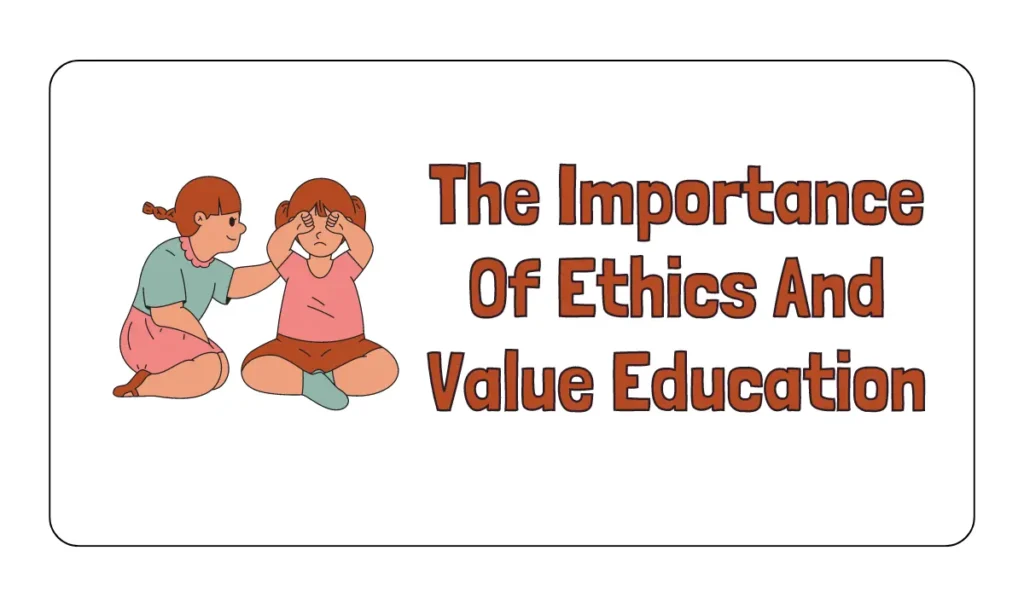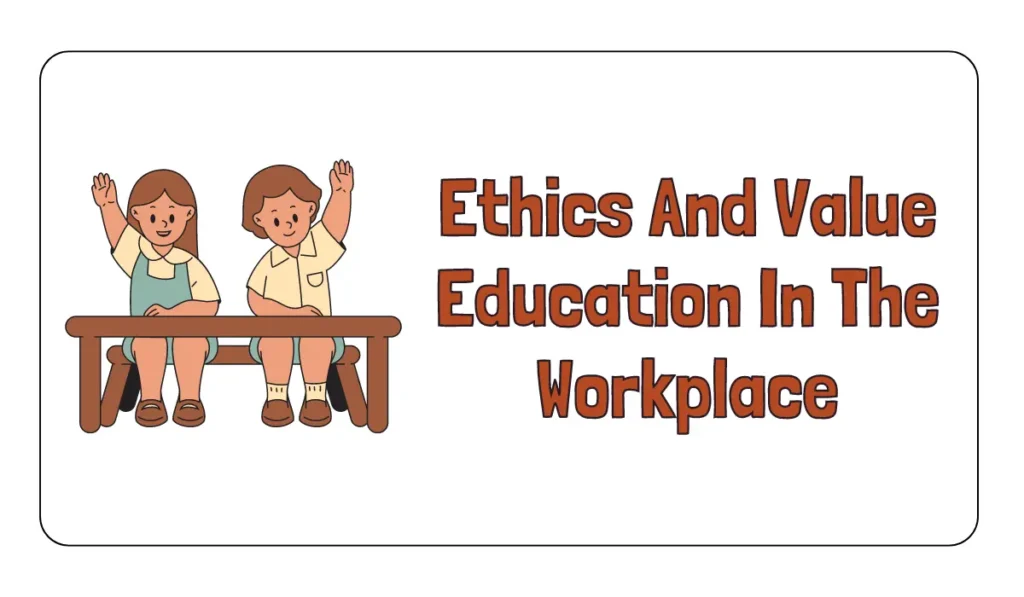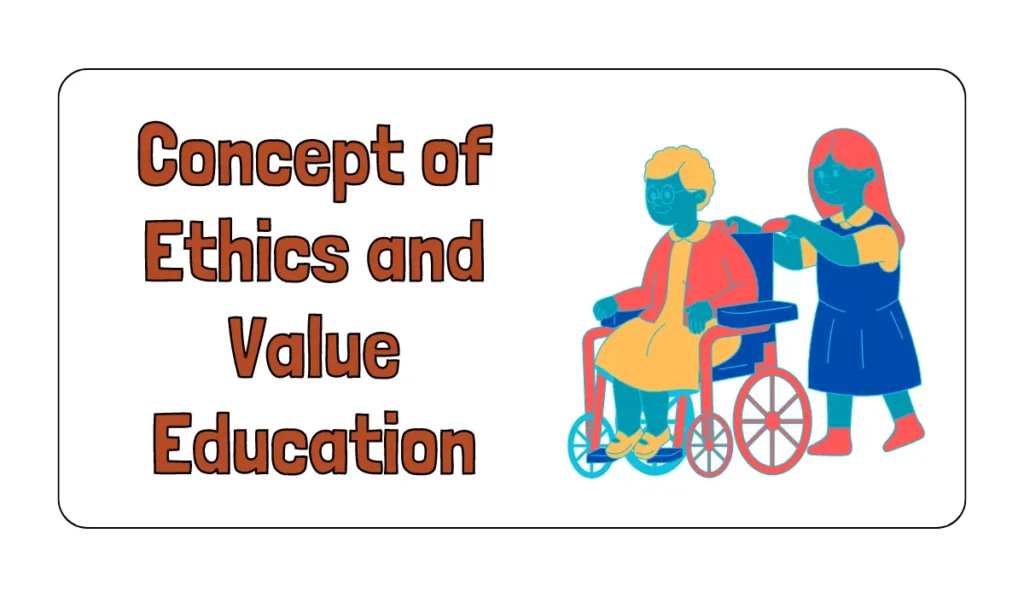Ethics and value education is the process of inculcating ethical and moral values in individuals through education. It is essential for the overall development of an individual in leading a meaningful life.
It involves teaching individuals about values such as honesty, responsibility, respect, empathy, and compassion, and how to apply them in their daily lives. The goal of ethics and value education is to promote a sense of social responsibility and encourage individuals to act ethically and with integrity in all aspects of life.
In this article, we will discuss the importance of ethics and value education, its benefits, and how it can be imparted to individuals in various settings.
The Importance Of Ethics And Value Education

Ethics and value education play a crucial role in a person’s growth and development. It shapes an individual’s character and helps in cultivating desirable values such as honesty, integrity, and respect.
This education also contributes to social growth by instilling a sense of responsibility towards society, promoting a positive outlook and a proactive mindset.
On a global scale, ethics and value education can create an immense impact by eradicating social evils such as corruption and violence. It encourages people to make informed and ethical choices that contribute to the betterment of society and the world.
Ethics and value education provide a strong foundation for personal, societal, and global growth, and it is imperative to incorporate them into our learning processes.
Ethics And Value Education In Education Systems
Education systems play a critical role in shaping the values and ethics of future generations. Incorporating ethics and values in the curriculum can have a significant impact on students’ development.
Teaching ethics and values in schools through interactive and experiential lessons can strengthen their understanding of the concepts.
Evaluating the effectiveness of ethical education through assessments and feedback can help identify areas for improvement. By emphasizing the importance of ethical values, schools can prepare students to make responsible and informed decisions in their personal and professional lives.
It is crucial to create an environment that promotes ethical behavior, where students can cultivate their values and contribute positively to society.
The Role Of Ethics And Value Education In Personal Development
Personal development is crucial for achieving success in life. One often-overlooked aspect of this is ethics and value education. By understanding our values, we can identify ethical dilemmas and make ethical decisions.
Ethics and value education teach us to be honest, compassionate, and ethical leaders, which are essential qualities for personal growth.
Developing ethical values promotes accountability both in personal and professional life. When we learn to make better decisions, we improve our relationships with others and gain respect from our peers.
Ethics and value education are key components for personal development as they help us recognize our values, navigate ethical dilemmas, and make decisions that align with our values.
By teaching these skills, people can grow and achieve success in their lives.
Ethics And Value Education In The Workplace

Ethics and value education are essential in workplace settings. Ethical behavior is crucial in promoting fairness, respect, and trust and strengthens relationships between employees, managers, and the organization as a whole.
It builds a positive work culture, drives business results, and helps to mitigate any legal and regulatory risks.
A workplace that values ethics creates a level playing field for all employees and gives them greater security and confidence to perform their duties without fear of retaliation or unfair treatment. By fostering a culture of appreciation and recognition, platforms like the kudos platform can help reinforce ethical behavior, ensuring that employees feel valued and motivated to uphold these standards in their daily work.
To establish ethical standards in the workplace, there needs to be clear communication between all stakeholders and an ongoing commitment to uphold those standards.
Leadership plays a critical role in defining ethical guidelines, modeling ethical behavior, and providing ongoing training and support to employees to ensure everyone stays compliant with those standards.
Ethics And Value Education In Society
Ethics and values education play a significant role in shaping our society. Increasing public awareness of the importance of ethics and values is the first step that can be taken to ensure a sustainable future.
Integrating ethics and values in civic activities can help individuals understand their impact on society.
It is essential to promote ethical behaviors in society to develop a culture of honesty, trust, and integrity. These values will help to build a better world where people can coexist peacefully, and conflicts can be resolved amicably.
It’s up to us to make the necessary changes and set an example, leading to a positive change in our society.
Frequently Asked Questions
What Is Ethics Education?
Ethics education is the branch of learning that aims to teach responsible decision-making and moral behaviors.
Why Is Value Education Important?
Value education is essential because it teaches individuals the importance of ethics, morals, and values in leading a successful and fulfilling life.
How Can We Incorporate Ethics Education Into Our Daily Lives?
We can incorporate ethics education into our daily lives by practicing self-reflection, promoting open communication, and encouraging empathetic behavior toward others.
Conclusion
As we realize the significance of values in our daily lives, we cannot deny the need for ethics and moral values. Ethics and value education help people make better decisions, develop good habits, and lead happy and peaceful lives. It is a holistic approach to life that aims to create a just and equitable society that values individual and collective needs. The inclusion of ethics and value education in schools and universities is essential to raising ethical and responsible citizens who can contribute positively to the world. By embracing ethical principles, we become more compassionate, and empathetic and develop positive relationships with others.


